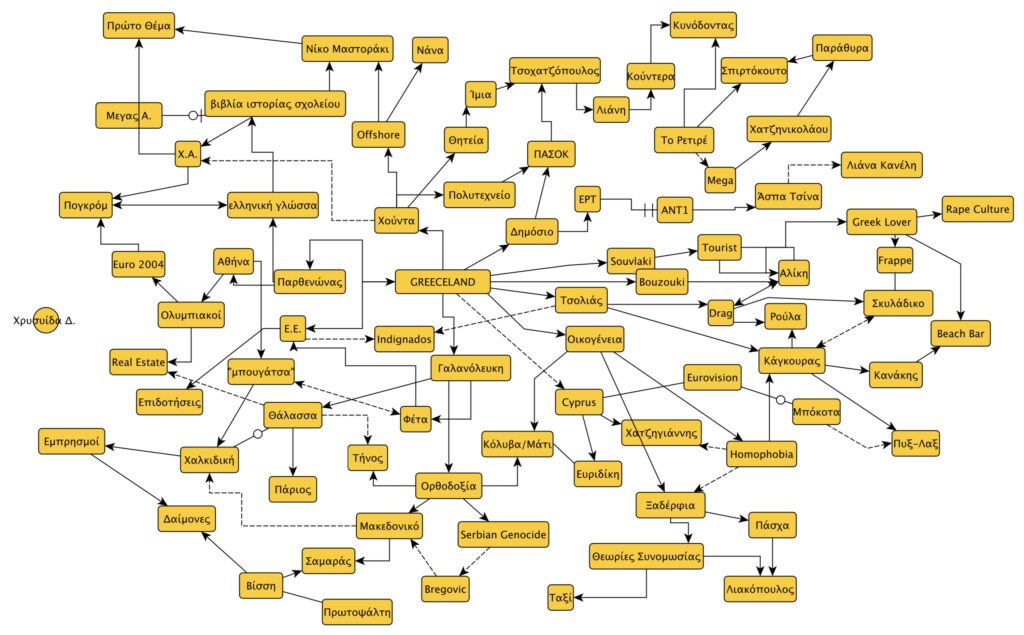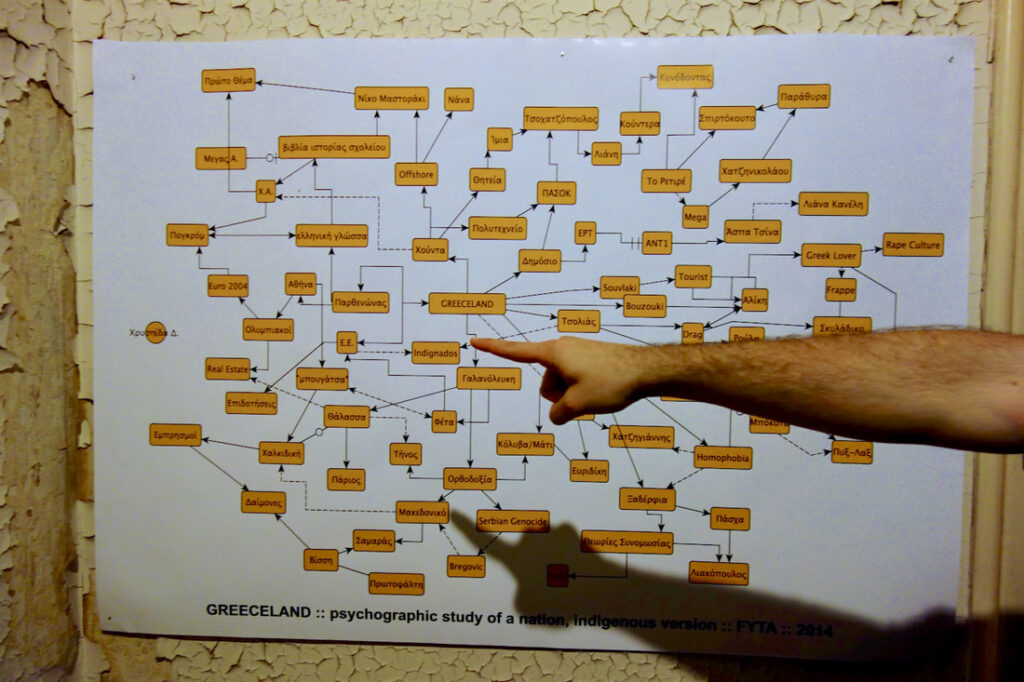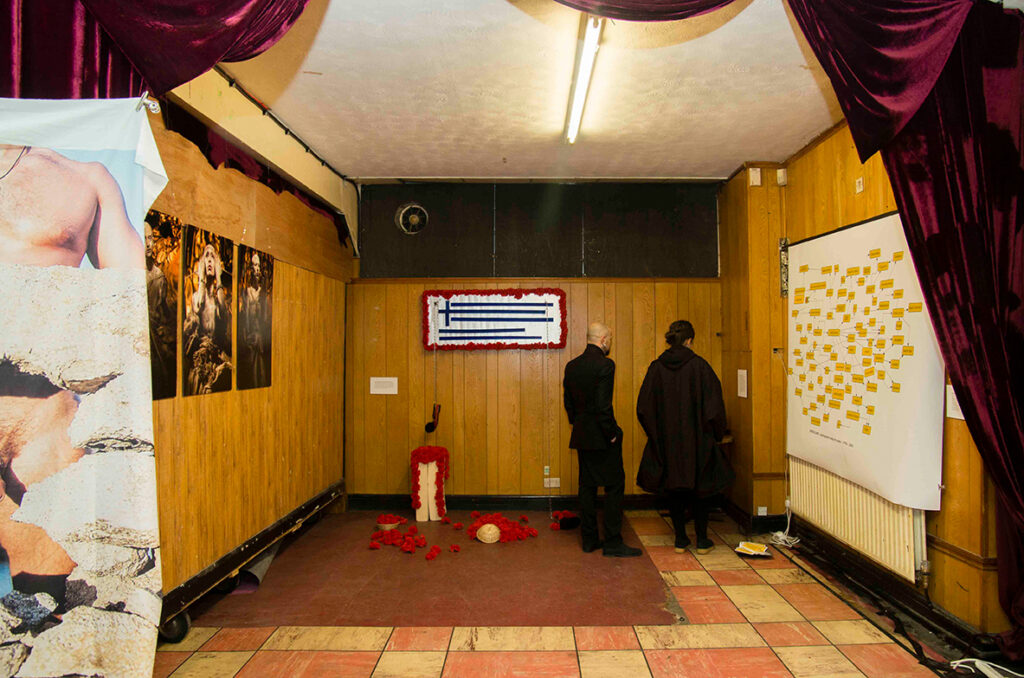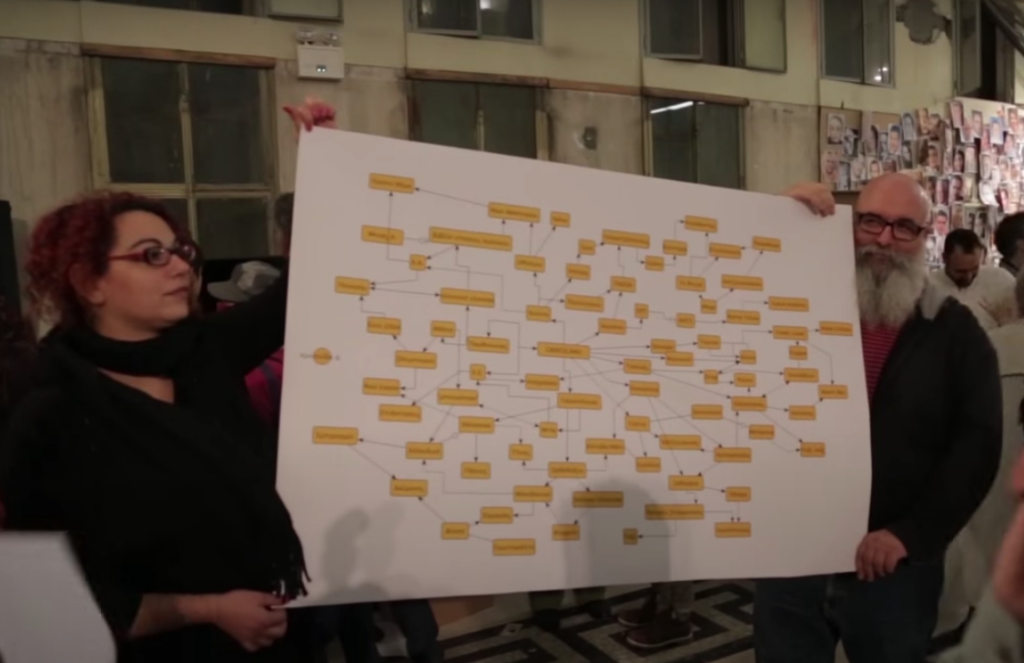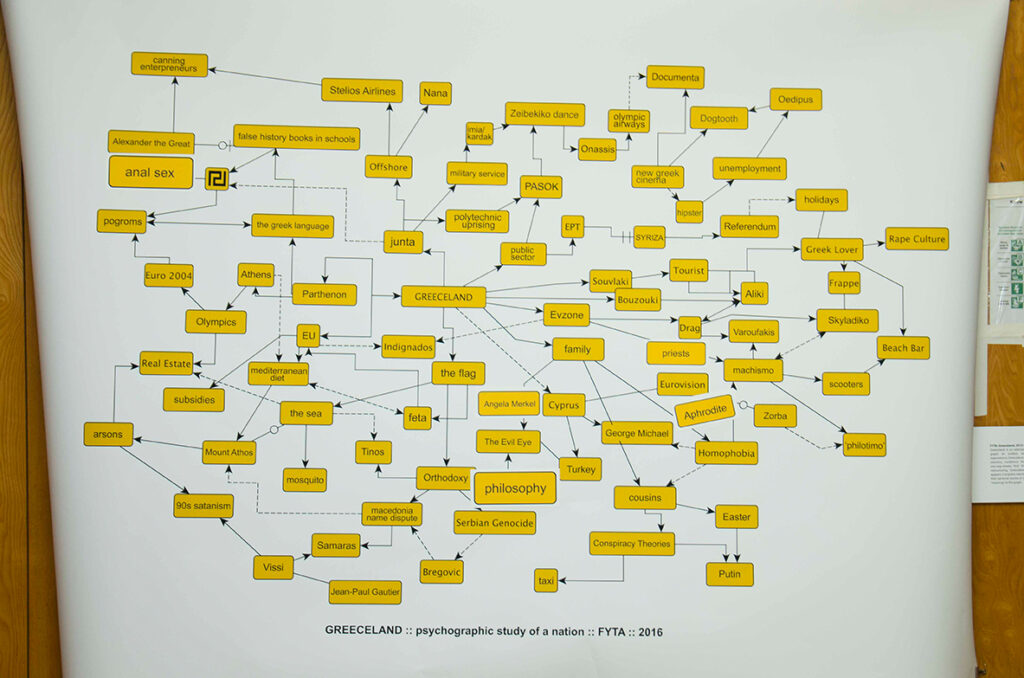Research
The Garden of Dystopian Pleasures
@Studies in Theatre and Performance Volume 41 [Sep 2021]
In 2021, FYTA alongside Pedro de Senna and Richard Pfützenreuter published the article ‘The Garden of Dystopian Pleasures’ at the Studies in Theatre and Performance journal. This article offered a reflection on FYTA’s curation and De Senna and Pfützenreuter’s performance at ‘The Garden of Dystopian Pleasures’, a performance festival that took place at the Athens School of Fine Arts in 2018. FYTA presented their thoughts around the need to curate such an event in the first place, discussing the context within which they operate, the Athenian art scene, while making the case that ambiguity as a political and poetical tool must not be surrendered to the right. De Senna and Pfützenreuter discuss their experiences in creating and performing right-wing personas that blur the lines between what is real and what is performed; engaging in strategies of overidentification, they initiate a discussion around the ethics and role of critical artistic practice in response to contemporary right-wing radicalisation and aesthetics.
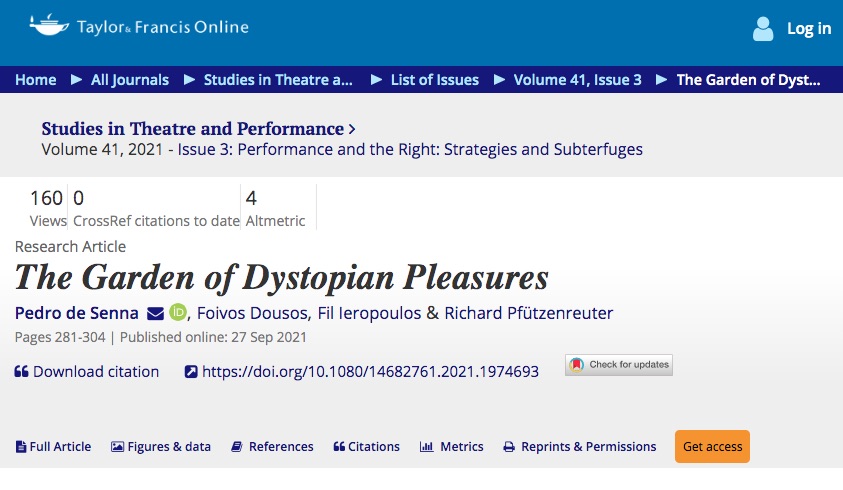
The ABC of FYTA
@online [Nov 2017 — ]
In 2018, FYTA started an ambitious podcast project aiming at creating a two hour show for each letter of the English alphabet. Each episode introduces concepts, philosophers, poets and music from artists whose name starts from a different letter. In alphabetical order, FYTA re-examine and re-define the world of proper names. The show, called the ABC of FYTA, aims at creating the a new language; it is essentially a dictionary of pulses and pauses, a study in nominalism, a post-punk pilgrim, an educational radio program for the masses who struggle to understand the new reality of our times. From Theodor Adorno to Alenka Zupancic and from Aunt Sally to die Zwei, the ABC of FYTA categorises an impossibly chaotic world of influences and contradictions.
Subscribe on Apple Podcasts, Spotify or Soundcloud.
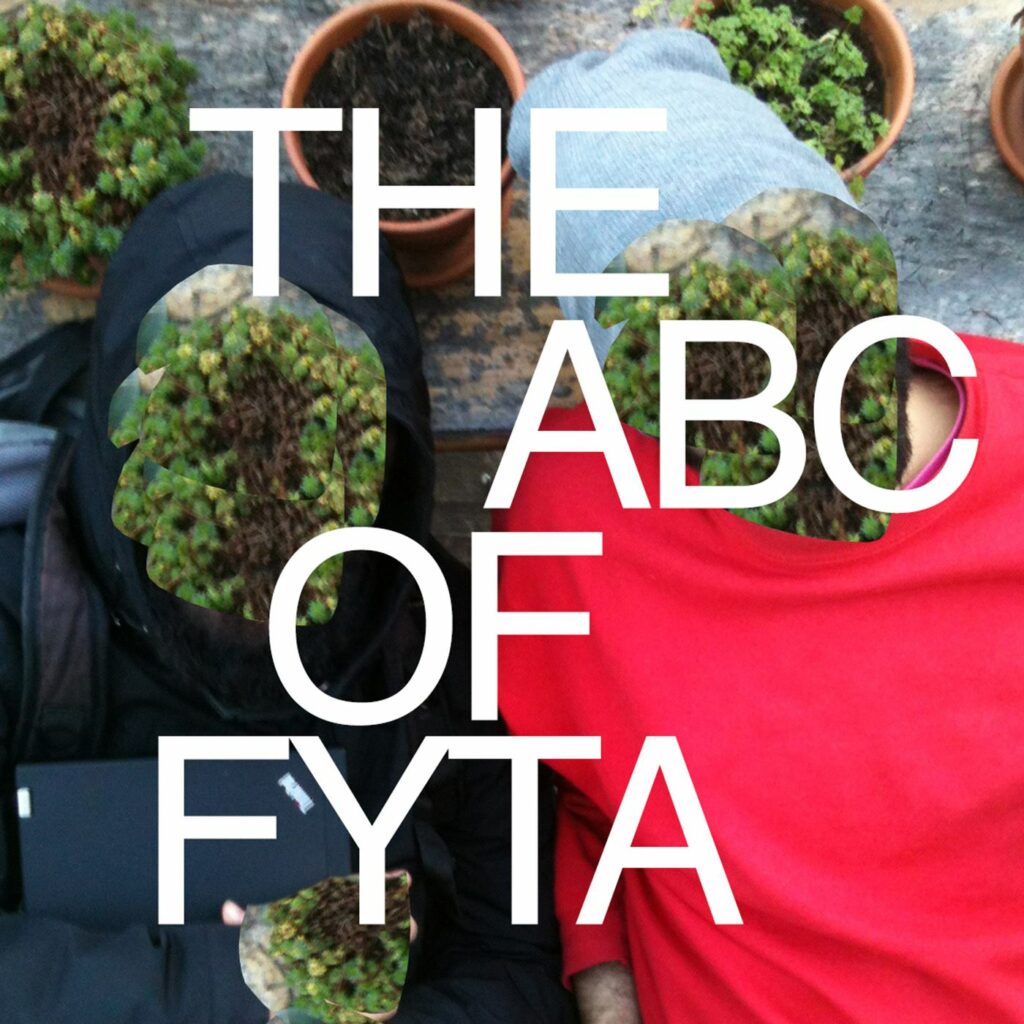


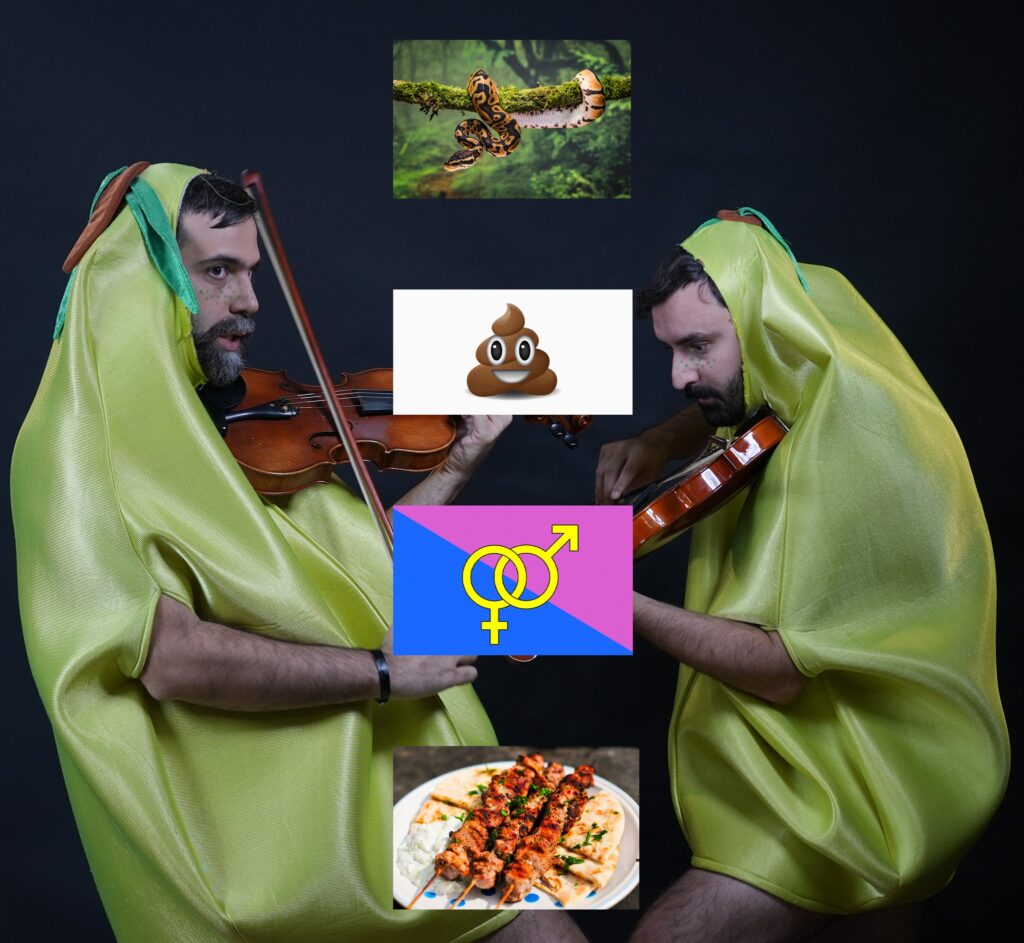
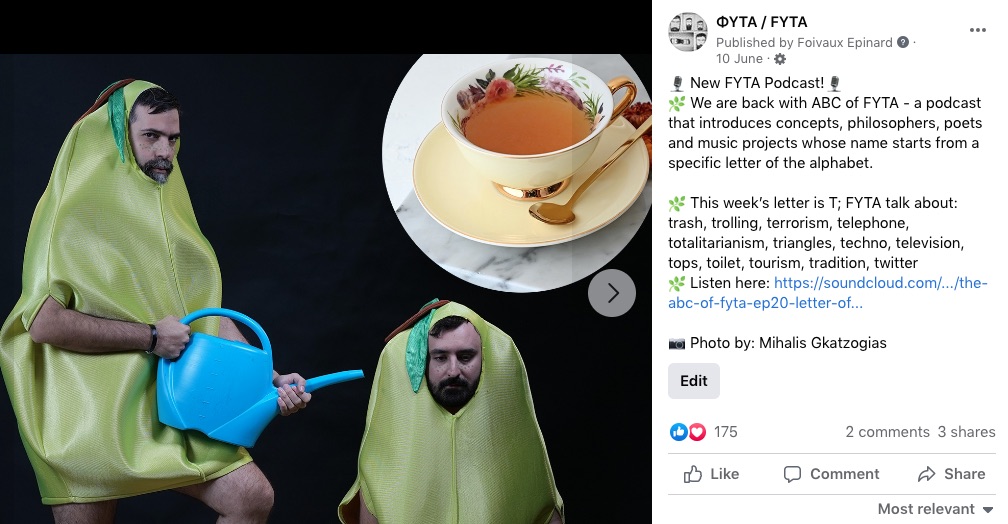
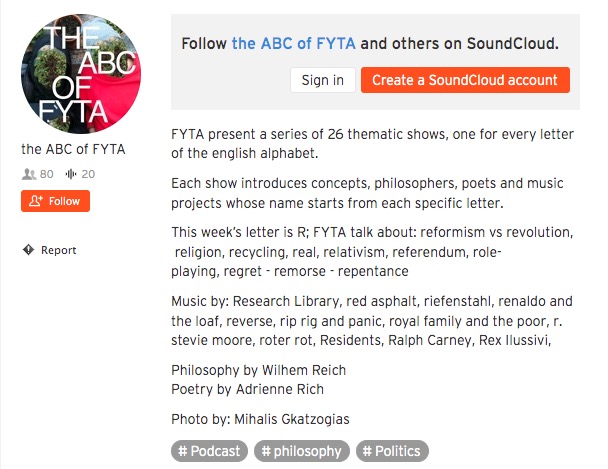
The Black Book of FYTA
@Nefeli Publishing [Oct 2017]
FYTA, in collaboration with Nefeli Publishing, published a volume with a selection of newly commissioned essays and creative texts on the political and the notion of radicalism in contemporary art. The Black Book of FYTA, edited by Athanasios Anagnostopoulos and FYTA, is a bilingual publication (english/greek) produced with support from Buckinghamshire New University. The book is not just a description of FYTA’s work but presents a series of academic and creative texts by theoreticians, artists and poets. The texts investigate topics such as the impact of the strategy of the commons in the art field, the practice of overidentification, gendered antagonisms, psychoanalytic angles on contemporary art, the possibility of epistemological critique through performance, notions of conceptual songwriting and the poetic function of FYTA’s work.
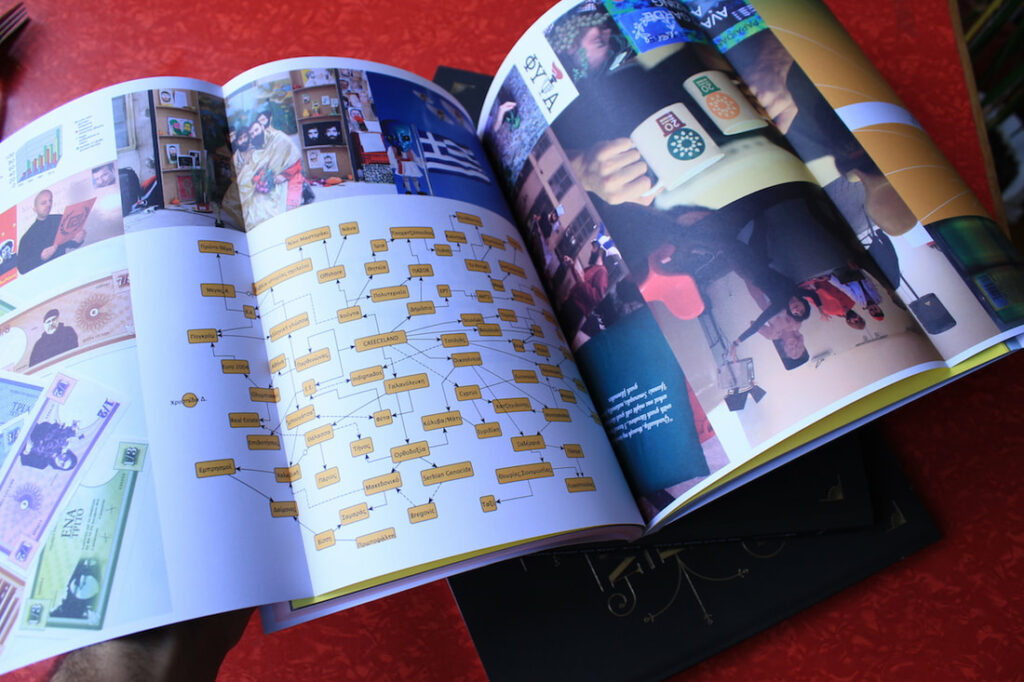
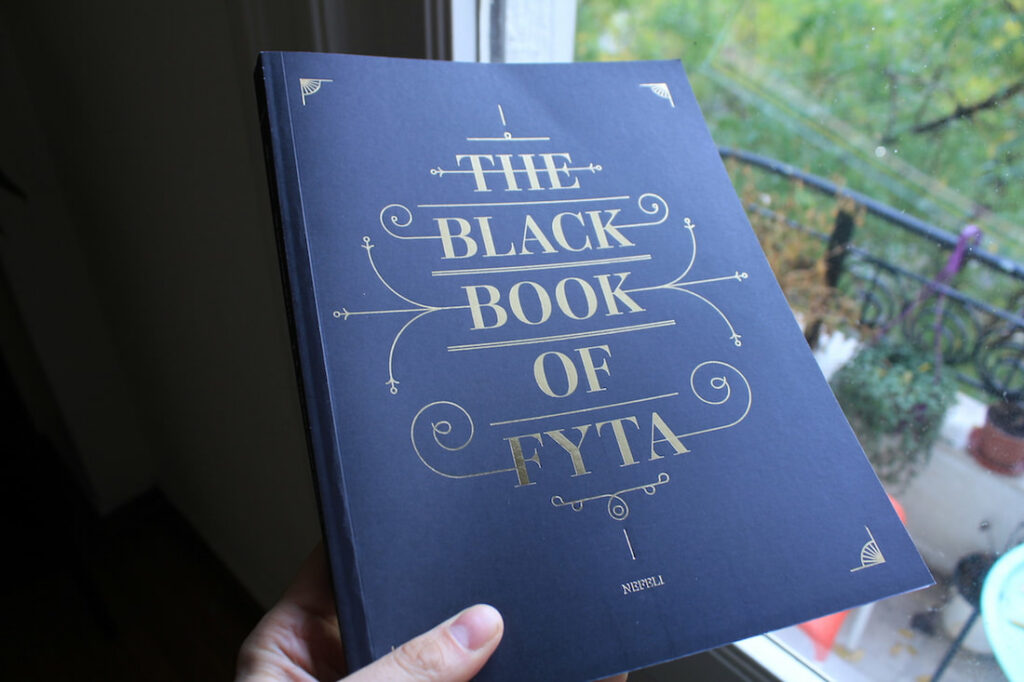
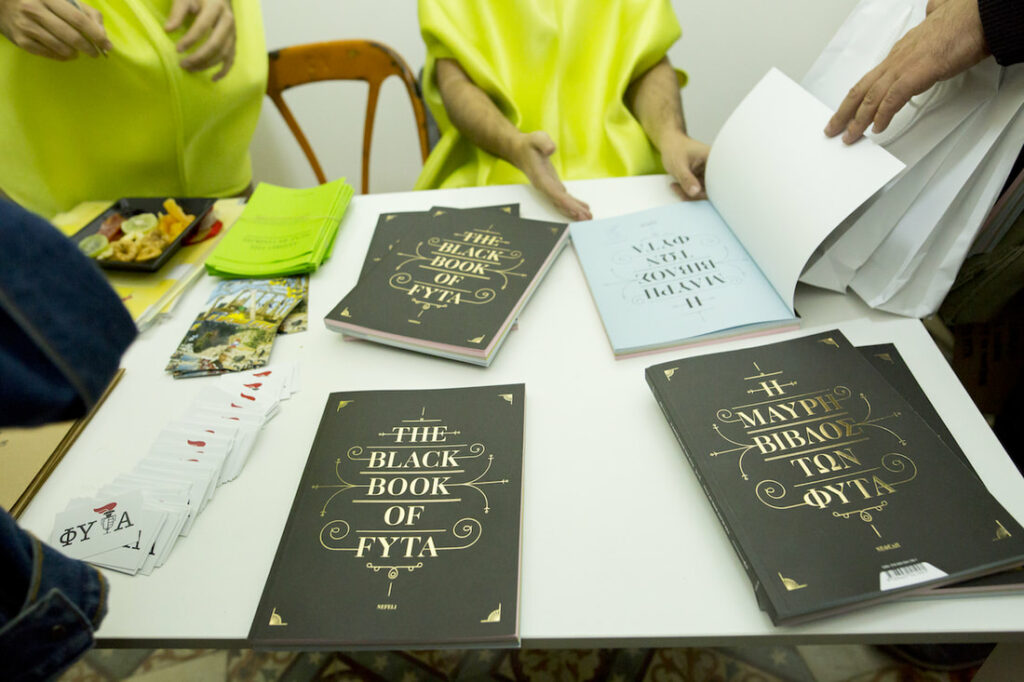
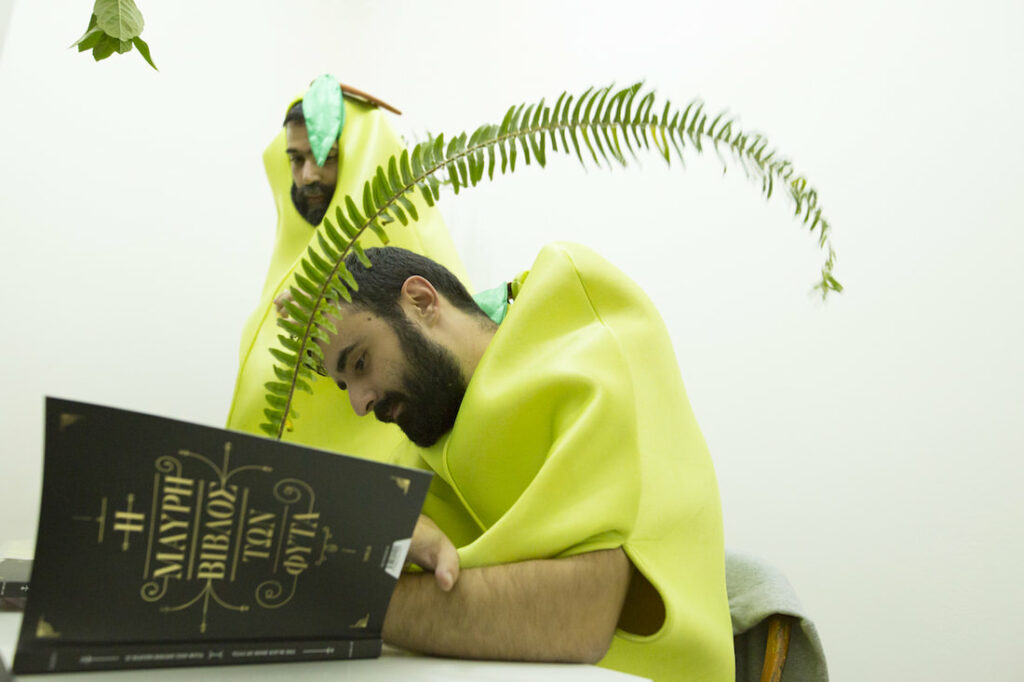
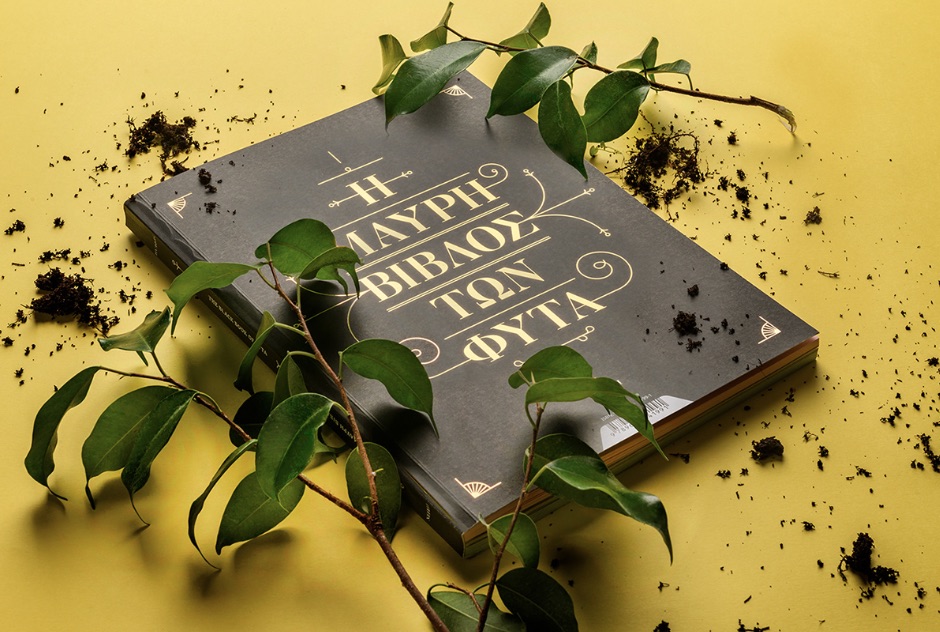

Queer / Unqueer
@ATOPOS CVC [May 2017]
FYTA and ATOPOS cvc presented an interactive installation on the notion of Queer, under the title “Queer::Unqueer”. During the first part of the event the audience was invited to comment on the ‘queerness’ of various everyday concepts presented on a large wall. This interactive process, that was organized and conducted by FYTA, invited the audience to reflect on the meaning of queerness as a concept in the greek context, exploring its analytical boundaries and creative potential.
During the second part of the evening there was a roundtable with artists, academics and activists engaging in a dialogue on what queer means in greece at the time of the event, focusing on how this concept was used in activist circles, and how it was starting to get appropriated by larger organisations and institutions (a process that was accelerated in the following years). The evening was part of the 2017 International Museum Day programme “Museums and contested histories: Saying the unspeakable in museums”.
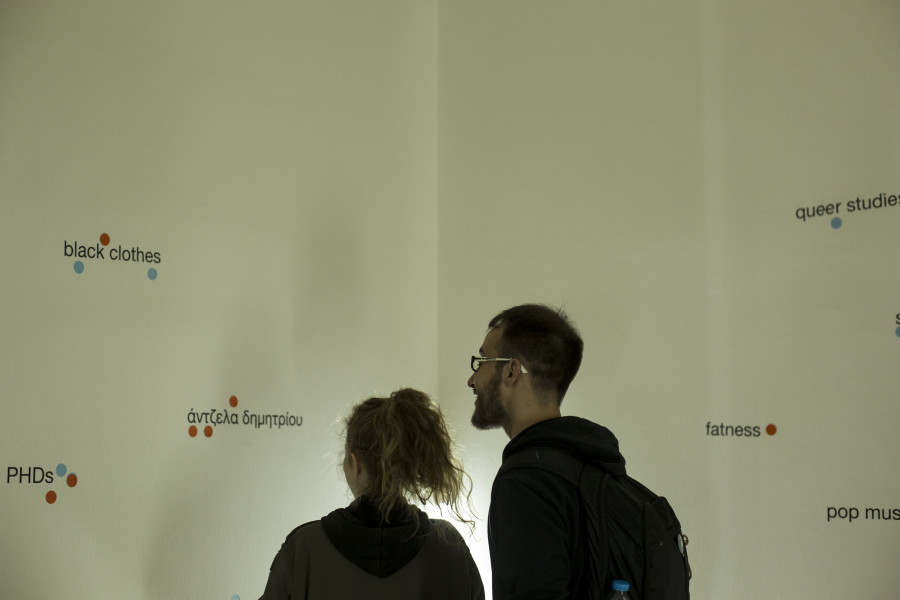
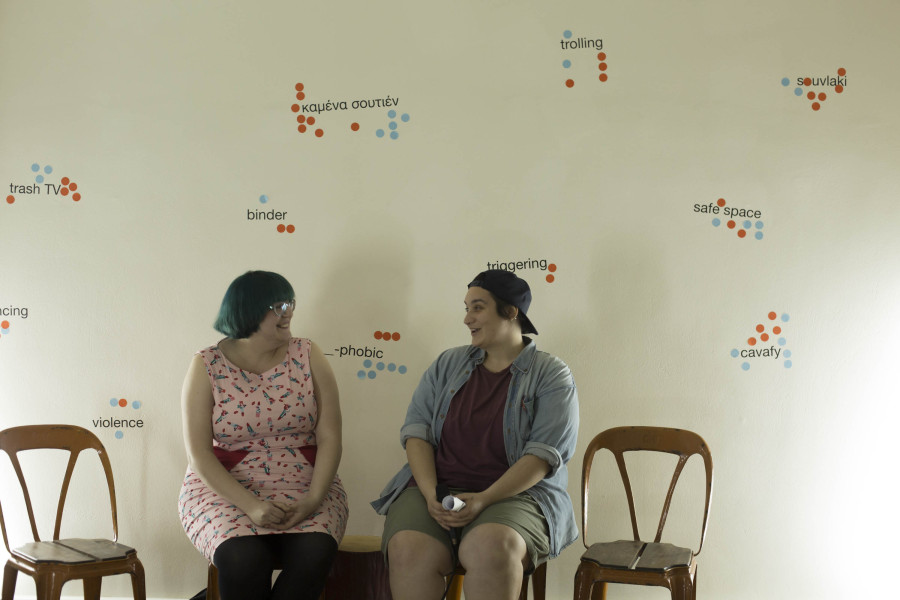
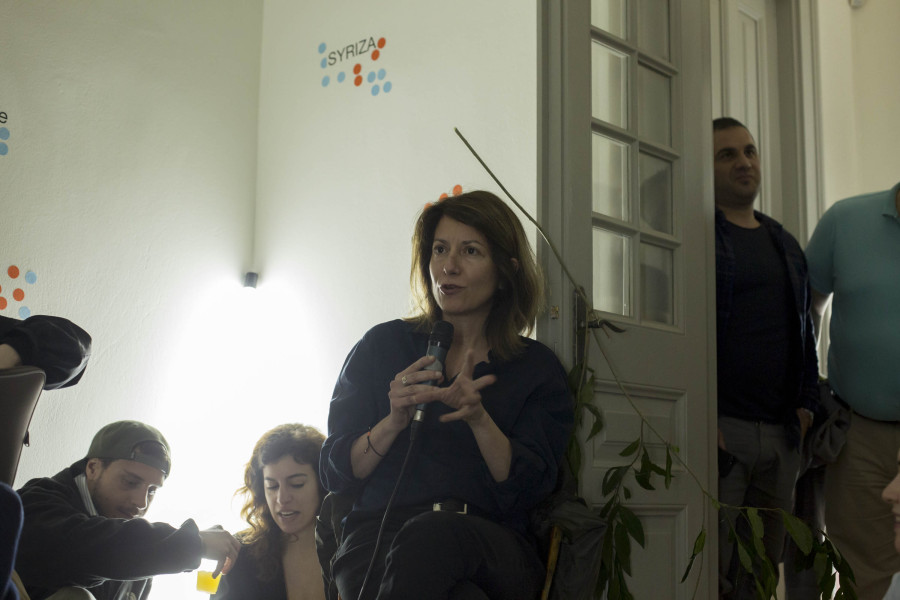
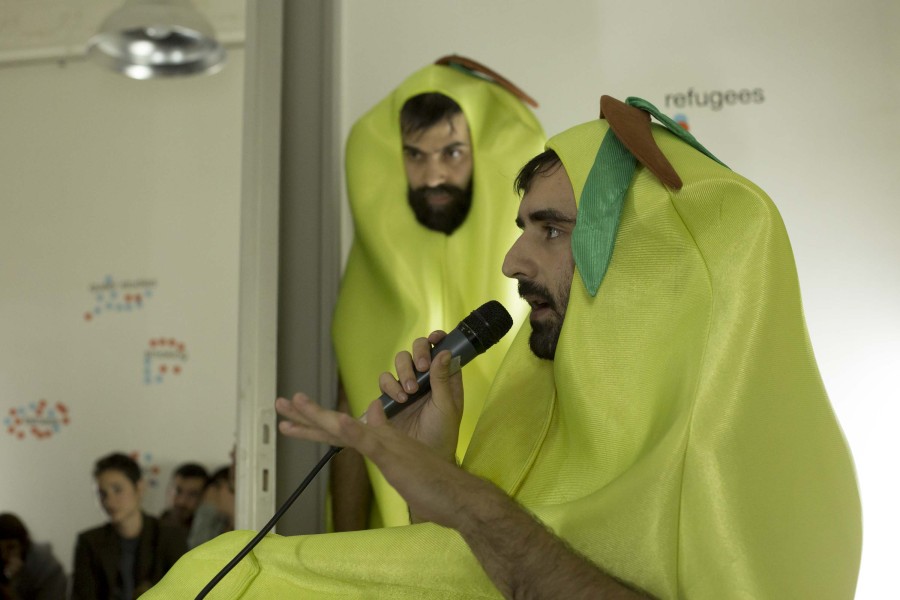
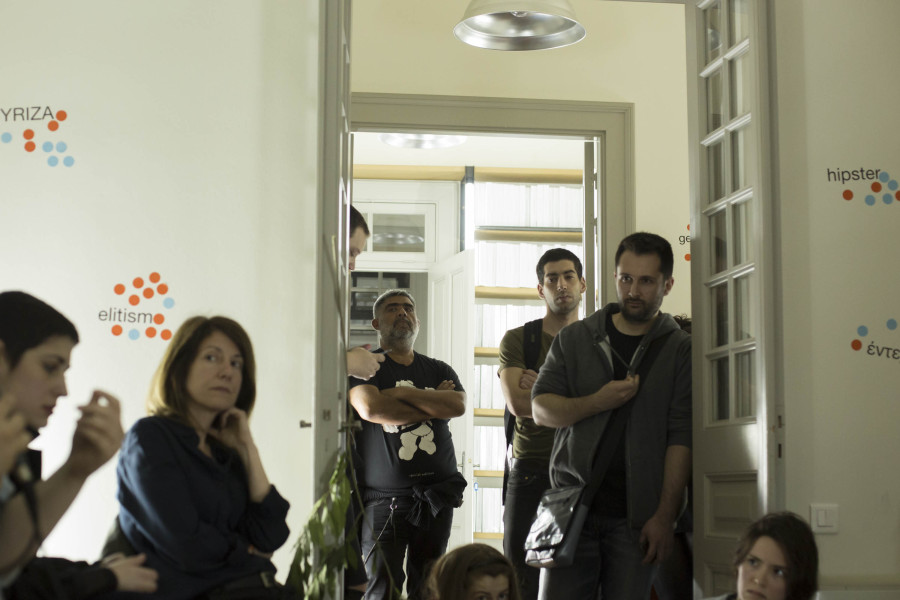

Waiting for the Barbarians
@Athens Biennale [Apr 2017]
Waiting for the Barbarians was the title of the 6th Athens Biennale, curated by the group Heart & Sword Division, consisting of Poka-Yio, Kostis Stafylakis, Nayia Yiakoumaki, and FYTA. Amongst that biennale’s curatorial focuses were: notions of othering, exoticisation, neo-colonial concepts, as well as the alt-right, the rise of fascism and overidentification. Unlike previous instalments of the Athens Biennale Waiting for the Barbarians was highly performative and events-based, addressing and thematising the artistic occupation of Athens by the mega-exhibition Documenta 14. In April 2018, FYTA resigned from the biennale due to irreconcilable differences with the artistic director (Poka-Yio). The ‘Waiting for the Barbarians’ team disbanded soon after, not with a bang but with a whimper.
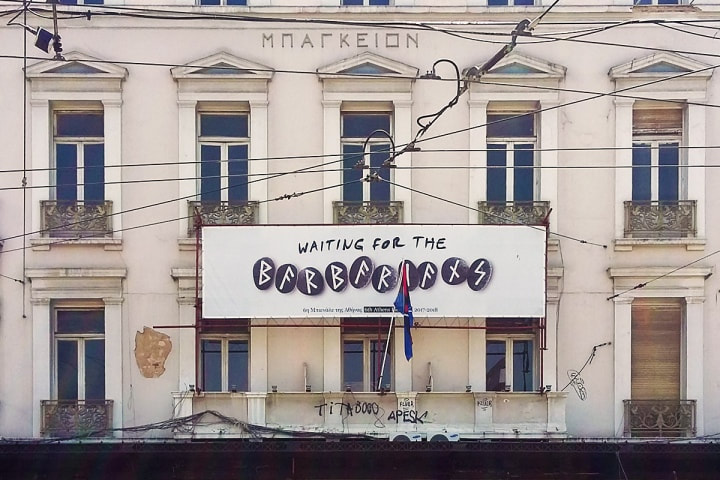




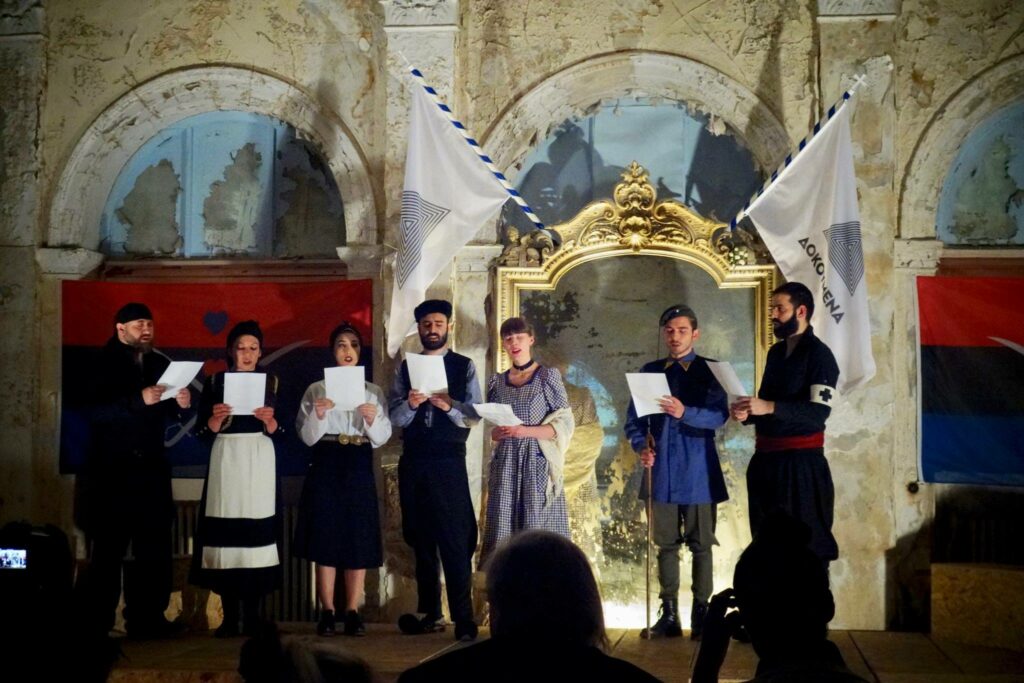
Conceptual songwriting & object-oriented synthesis
@Athens Museum of Queer Arts [May 2016]
In May 2016, FYTA organised a workshop at the Athens Museum of Queer Arts, in which they shared with the audience some of their methods as conceptual songwriters. During the session, they showcased their object-oriented DIY approach to composition that they have utilised throughout their discography. Every participant ended up making their own song, composed of personal material and improvised music.
Participants were asked to bring with them any of the following: their own lyrics, found poetry, real or imaginary instruments, beloved objects, samples of music etc and under the FYTA guidance they used those elements plus many more that were provided, to compose a conceptual song. No knowledge of music theory, harmony or sense of rhythm was necessary.
In 2017, the workshop was also presented in the Embodied Methodologies conference at Royal Holloway, University of London.
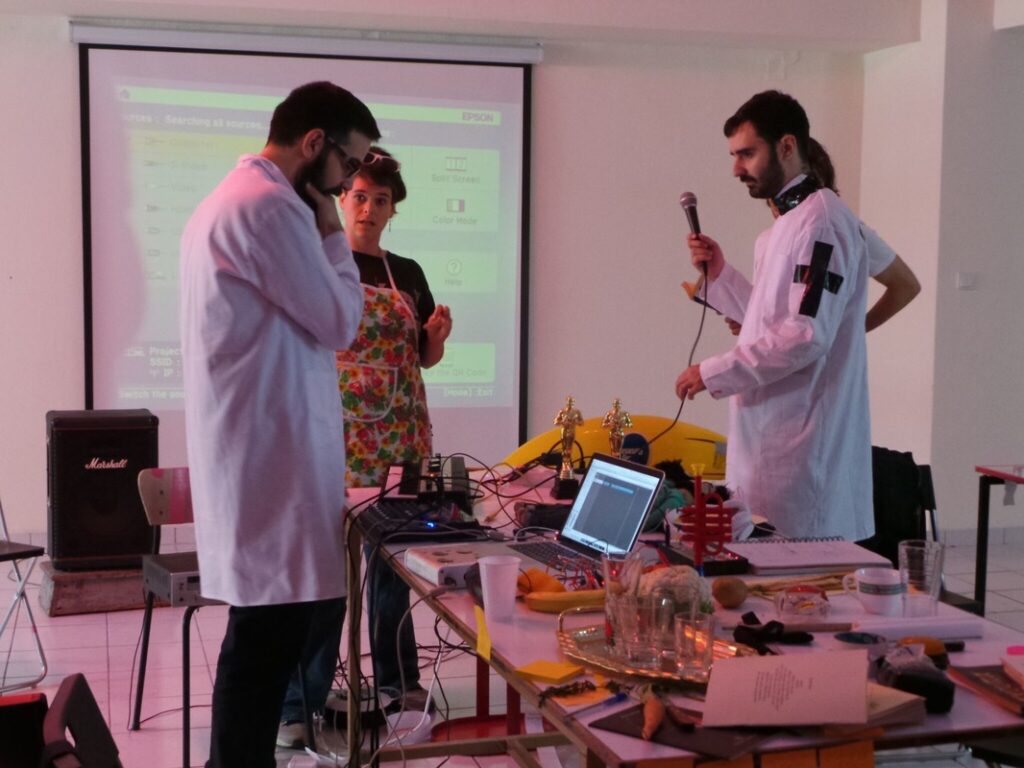
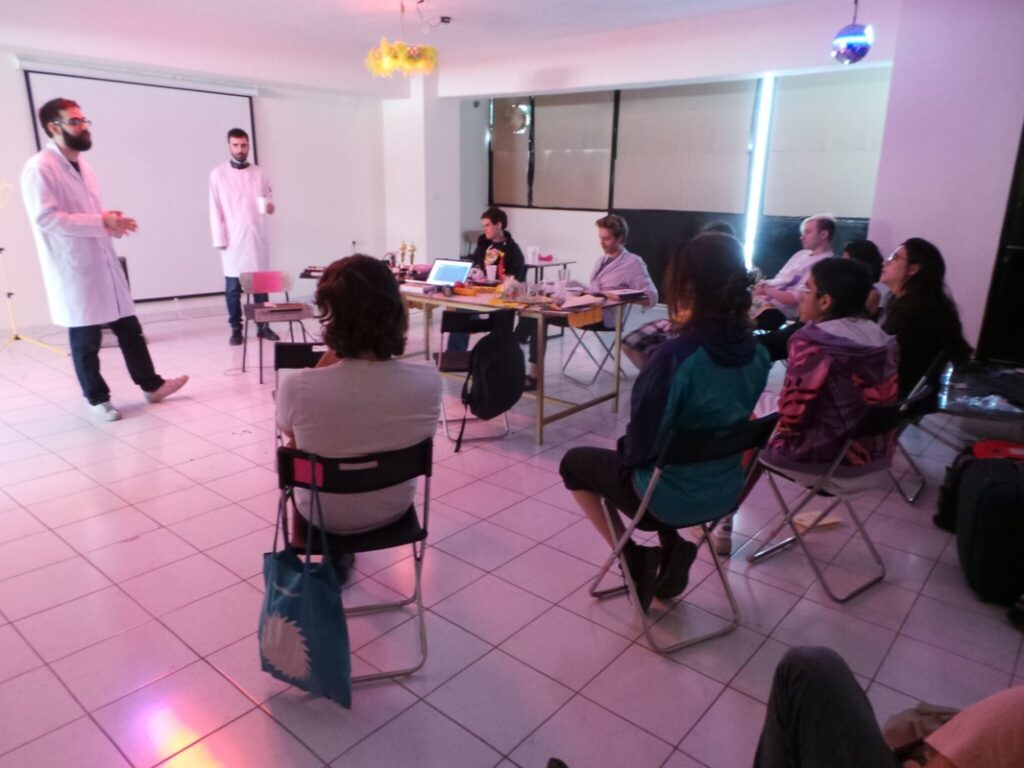
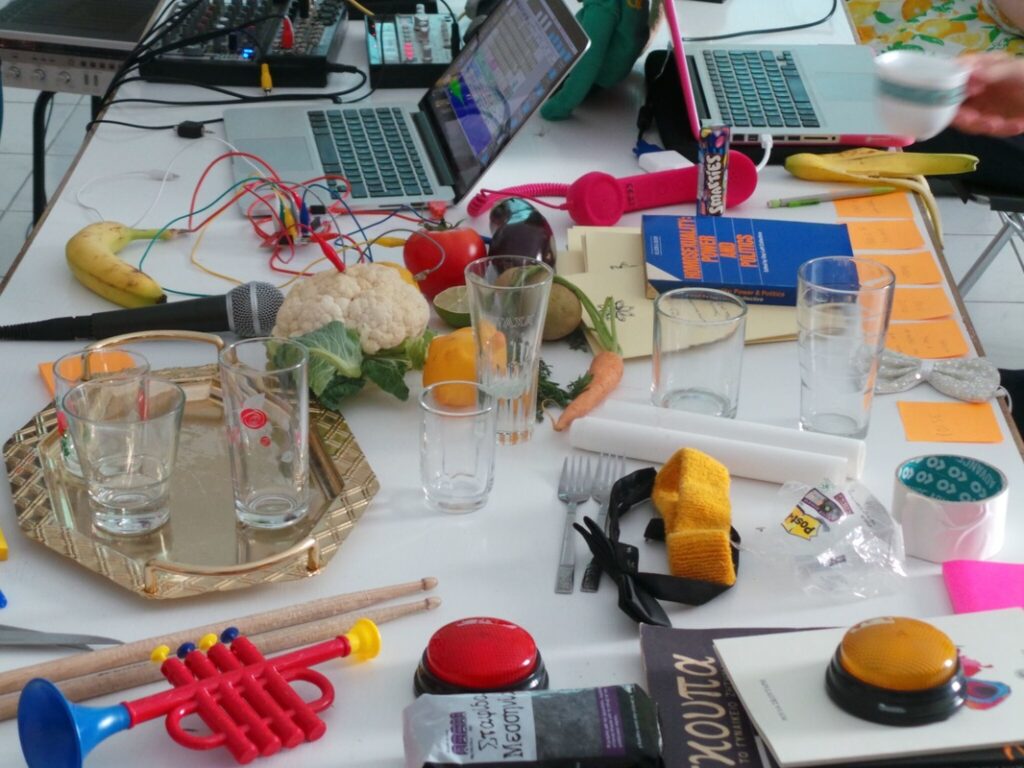
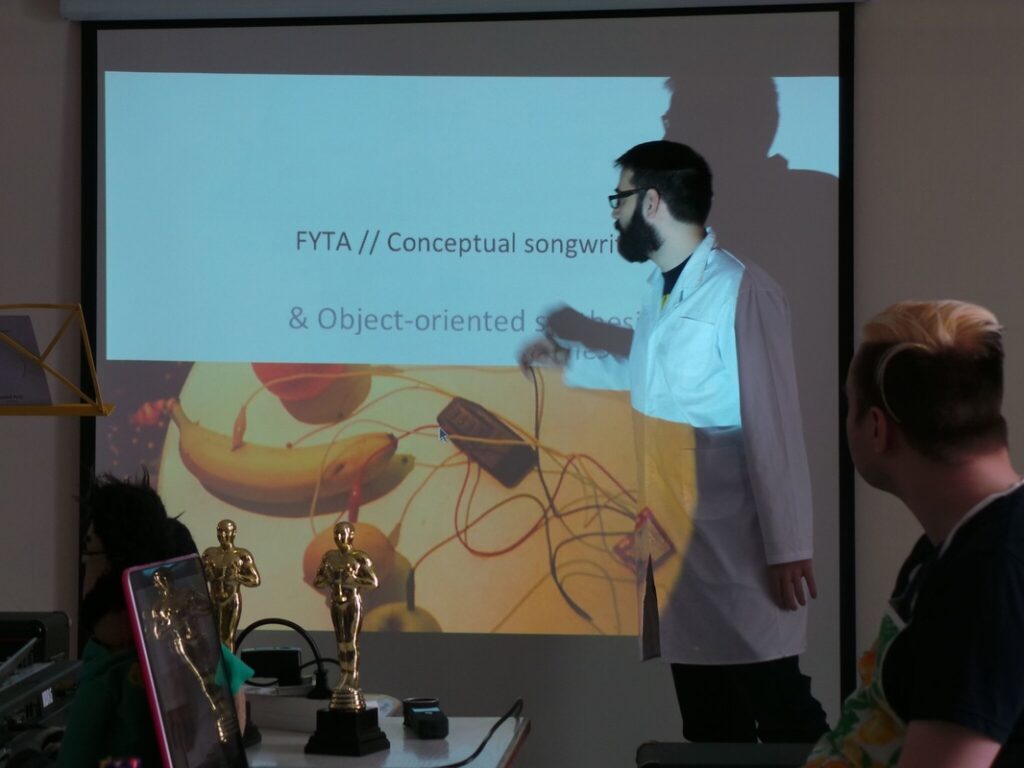
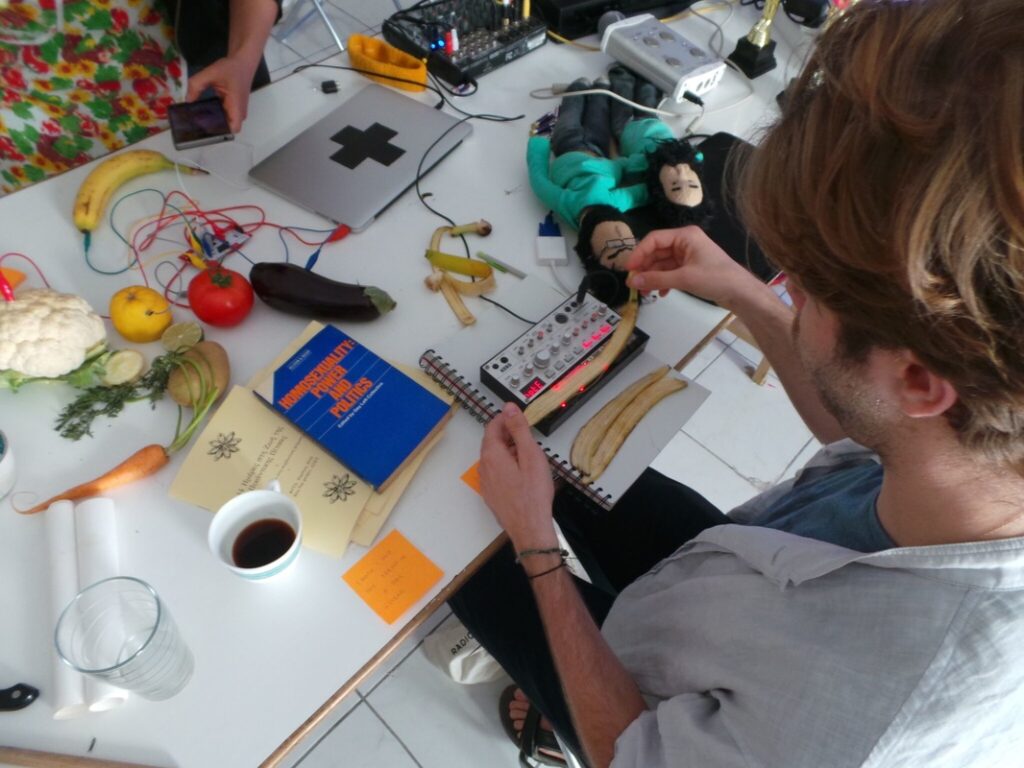
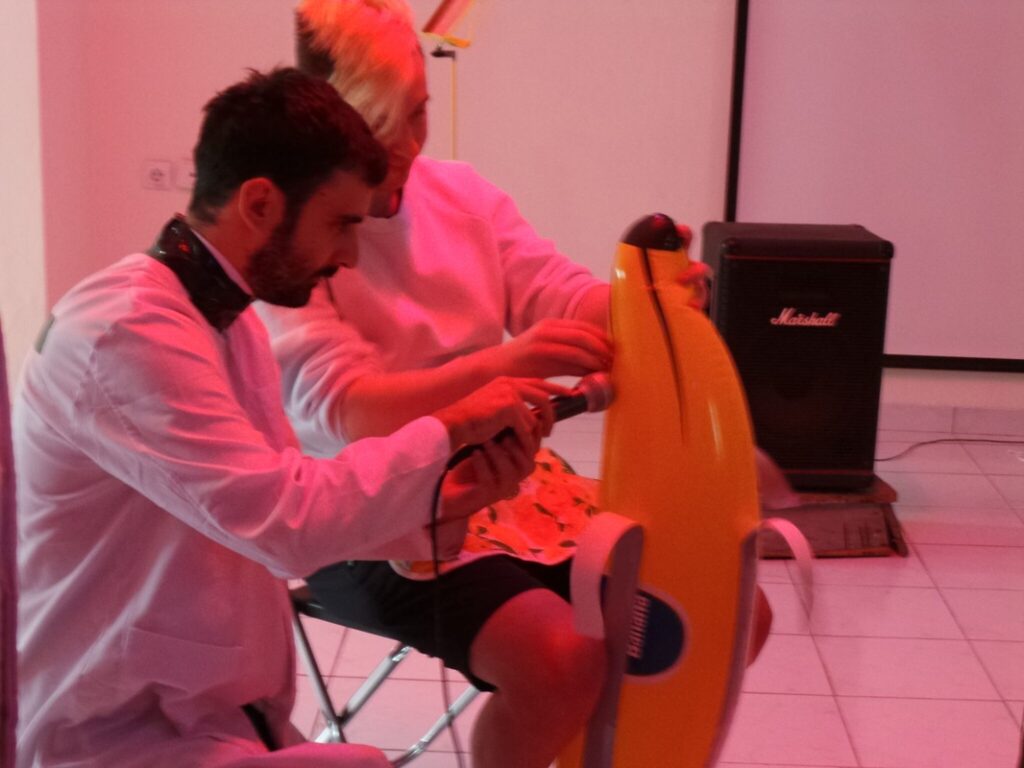
What is it all about? (lecture)
@Zürcher Hochschule der Künste [Oct 2015]
In 2015, FYTA presented a performative lecture at the media and art department of the Zürcher Hochschule der Künste in Zurich. The presentation reviewed the work of FYTA focusing on methodological questions around conceptual art, overidentification as an artistic tool, and the role of psychoanalysis in their creative practice.
FYTA – dressed like doctors – presented a series of case studies from their recent work accompanied by philosophical reflections and aphorisms. Over the course of the presentation they seemed to increasingly disagree on their artistic values and methods. The powerpoint presentation also seemed to disintegrate as the lecture progressed accompanying the growingly delirious tone.
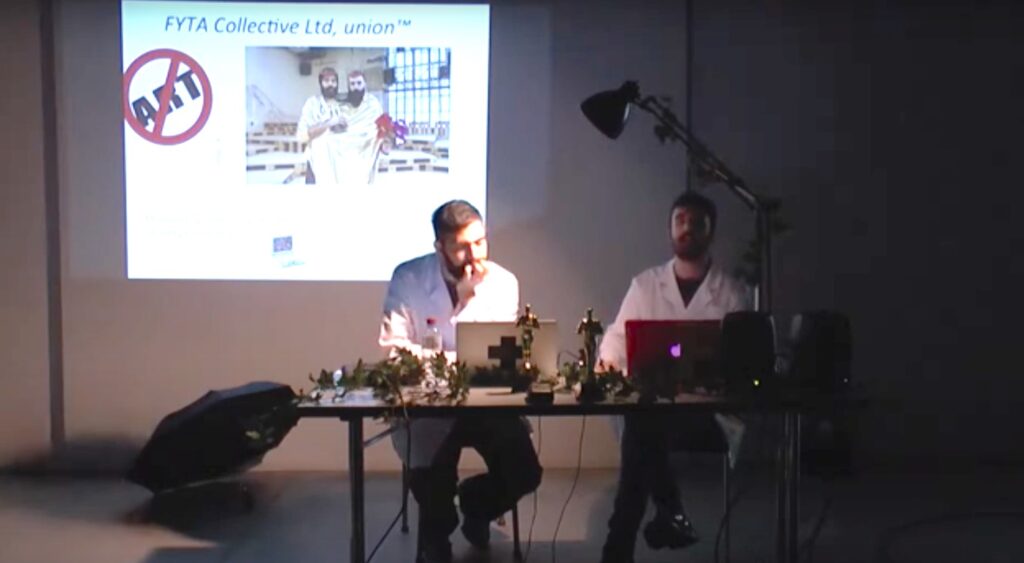
Fytini Lexicon 1 & 2
@Fytini Press [Feb 2015 — 2018]
The group of people around the DIY music label Fytini (FYTA, Louisa Doloksa and Alex Tsoli created in 2015 the first edition of their own unique lexicon followed by a second instalment in 2018 when Athanasios Anagnostopoulos joined the group. Bringing together neologisms, new analytical categories and despicable portmanteaus, the Fytini Lexicon developed a nascent camp and subversive vocabulary of a new era. The Lexicon had a double aim: on the one hand, it was an attempt to map and taxonomise the already existing and in-development inside-lingo the team used in their everyday communication; on the other hand, publishing the lexicon operated as a political gesture. For Fytini, words are performative: they create and produce new realities. Thus, perhaps a new Fytinean vocabulary would potentially disrupt normative and repressive regimes of the past and facilitate meaningful change.
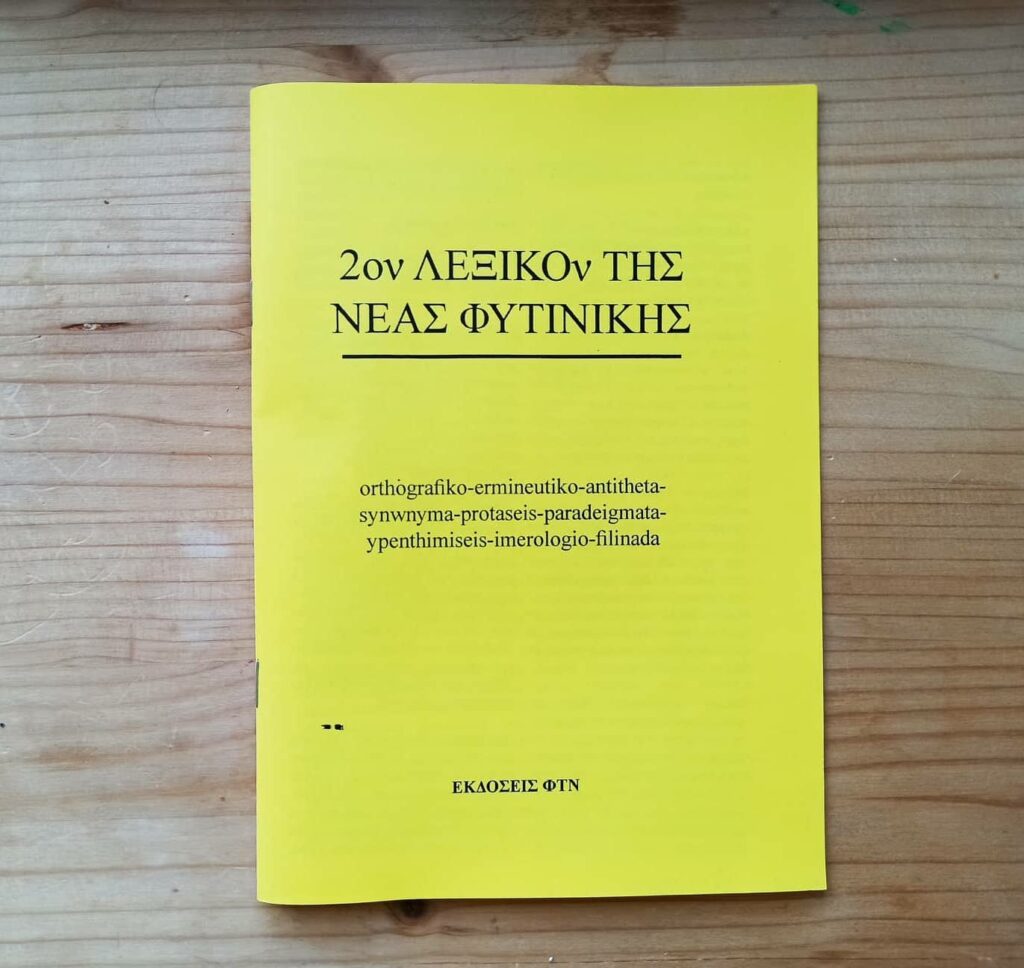
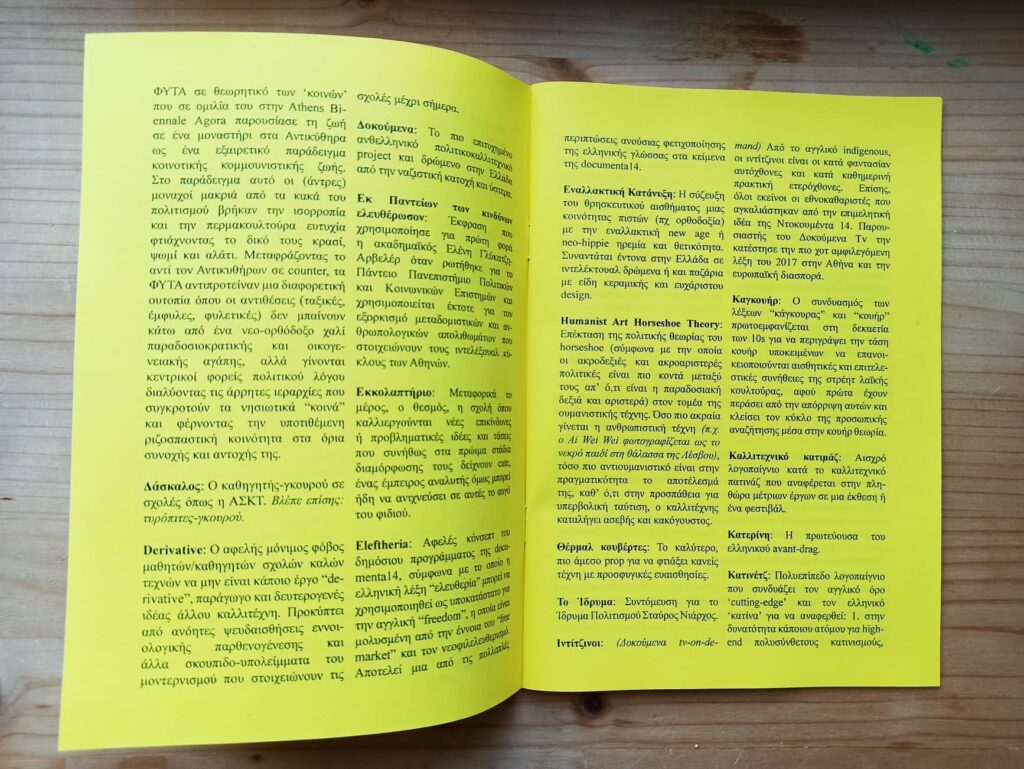
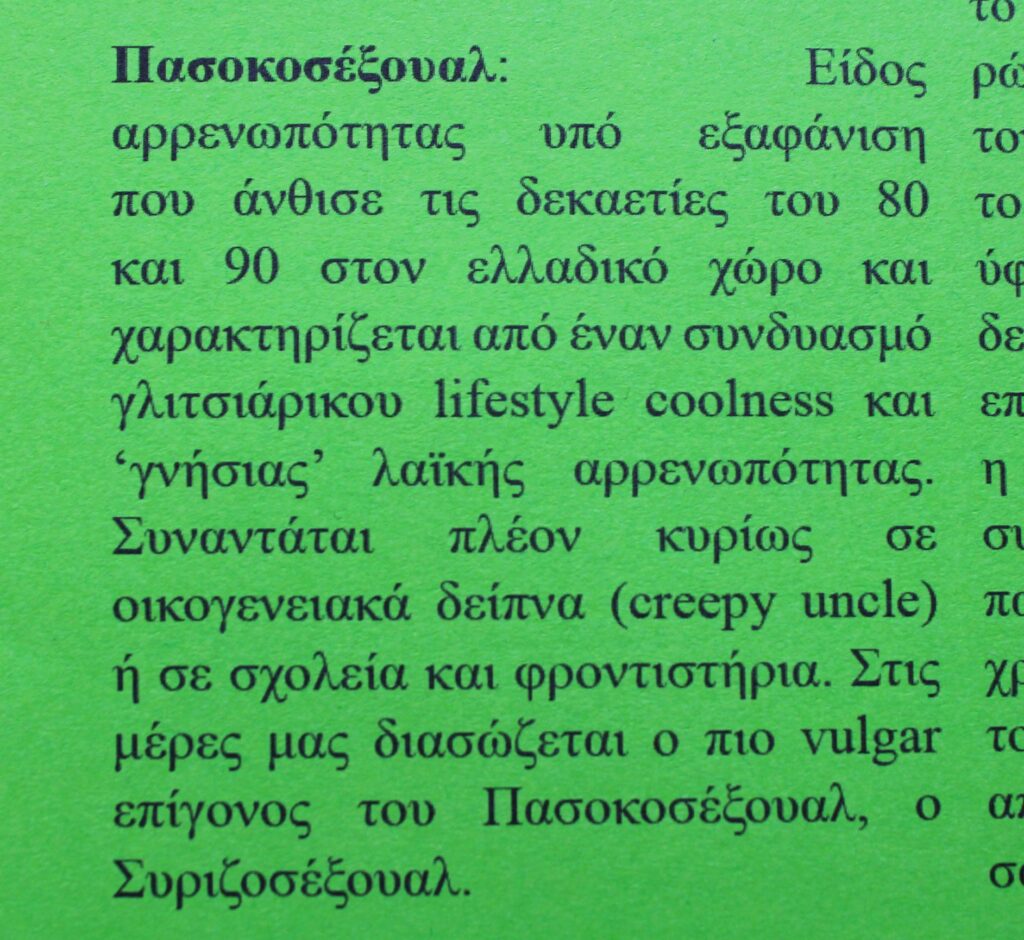
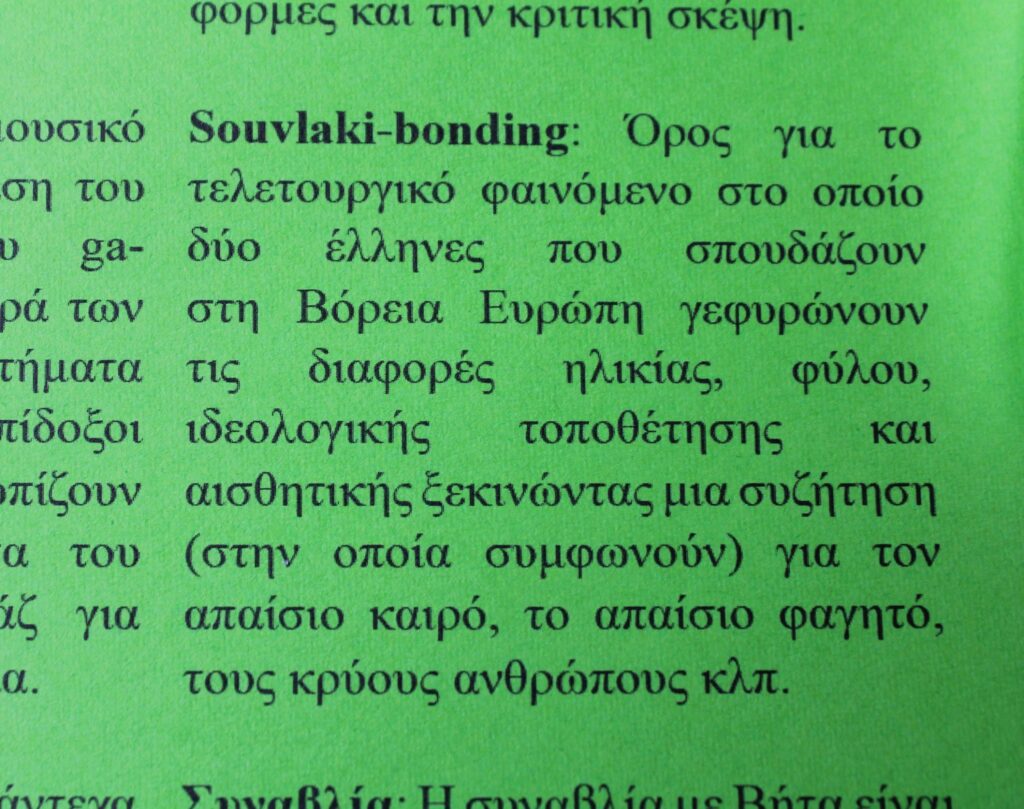
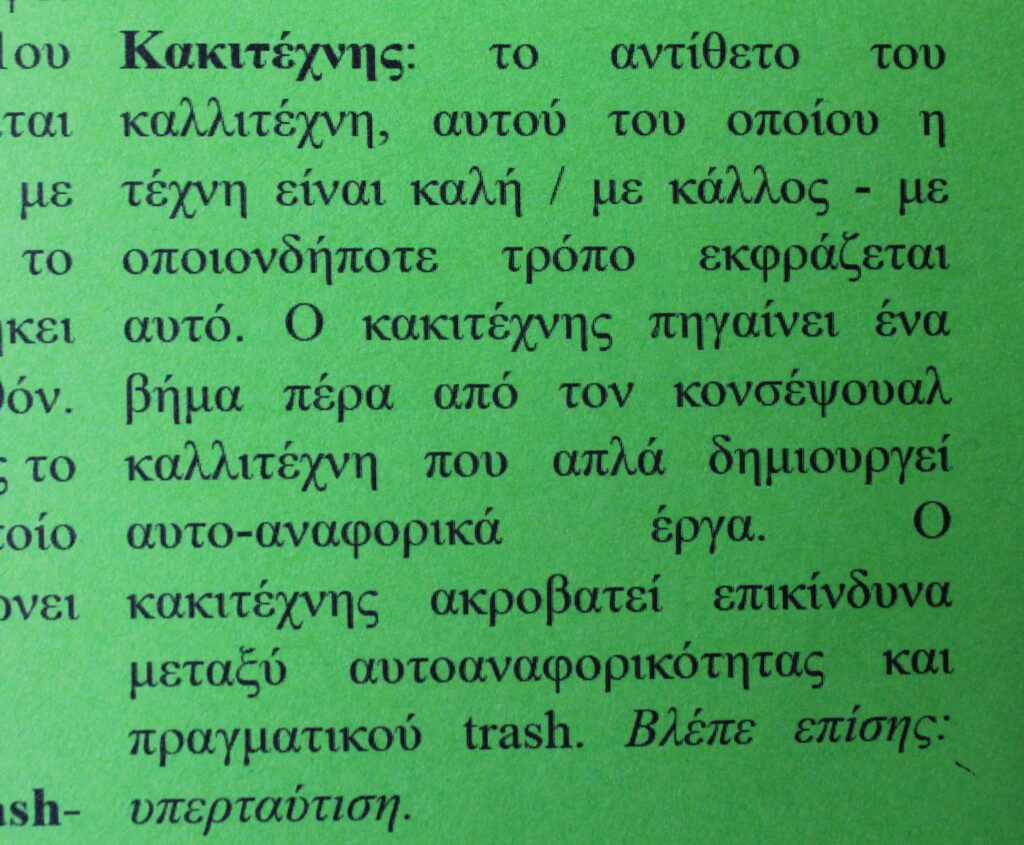
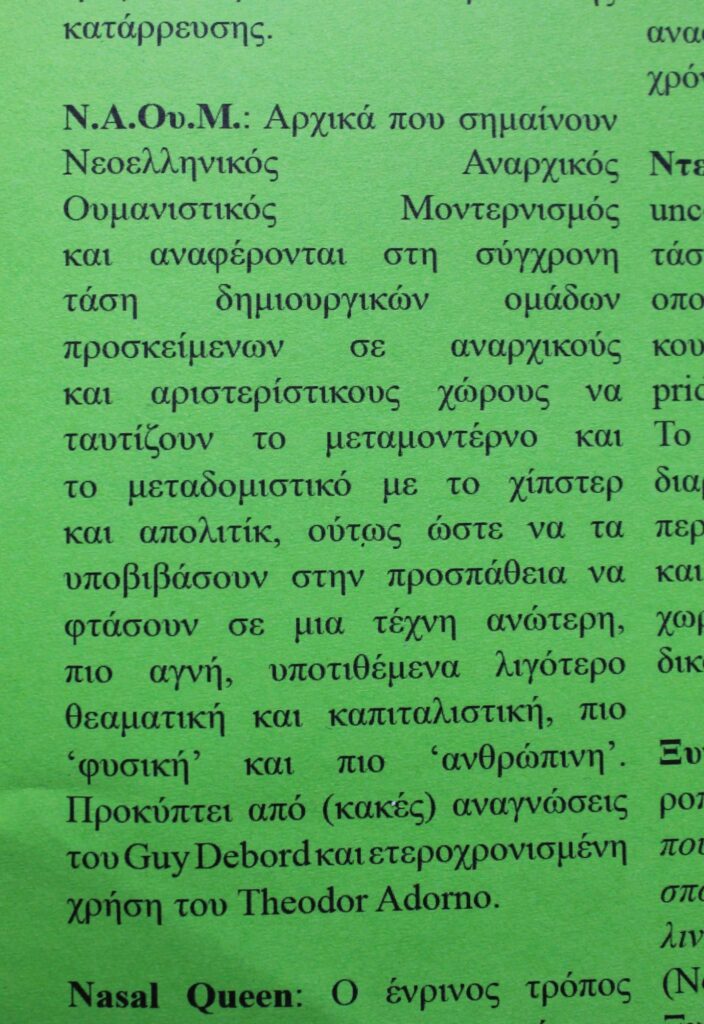
FYTINI: An attempt towards the queerification of greek music
@Sound:Gender:Feminism:Activism conference [Oct 2014]
In 2014, FYTA and the Fytini team presented a performative lecture in the Sound::Gender::Feminism::Activism conference at the London College of Communication. The lecture, titled “Fytini: An attempt towards the queerification of greek music”, focused on the intricacies of the greek-speaking alternative music scene. For the Fytini team, the established creative world in greece did not deal with questions around greekness, national identity and the patriarchy.
The team presented how Fytini attempted to destabilise power structures as well as aesthetical clichés that dominate greek music. To achieve this queerification of musical traditions, Fytini moved in four parallel, equally important axes: a. highlighting marginal subjectivities, stressing queer and feminist approaches b. destroying/dismissing traditional forms of the current music millieu, while promoting DIY messthetics c. fighting artistic over-seriousness and dangerously separative mechanisms as the concepts of low and high-brow music d. Disengaging with financial exchange systems, offering all music for free downloads.


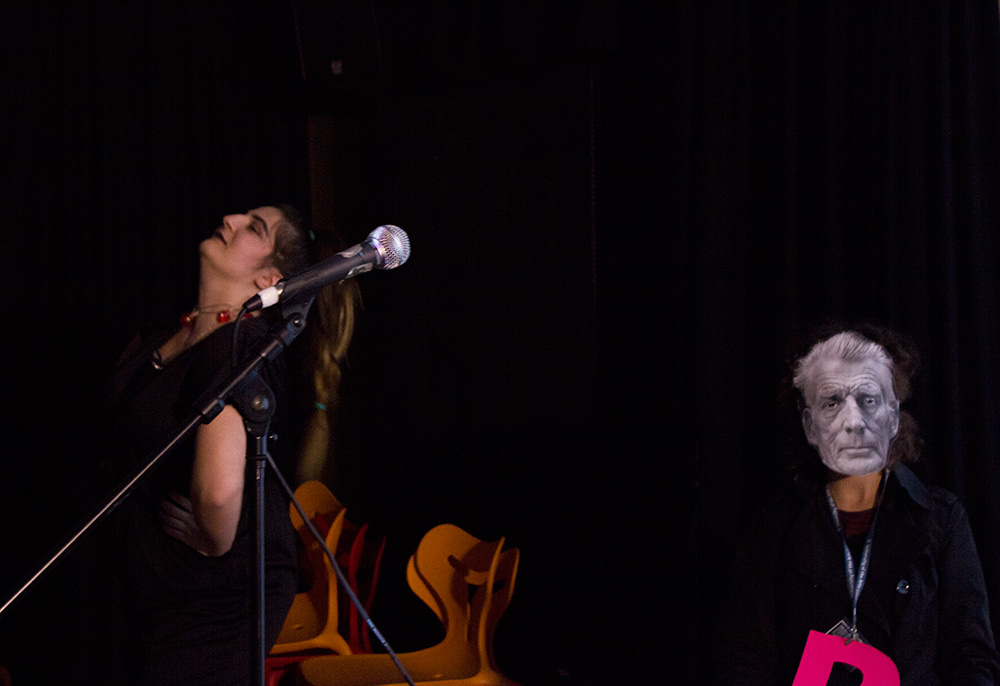
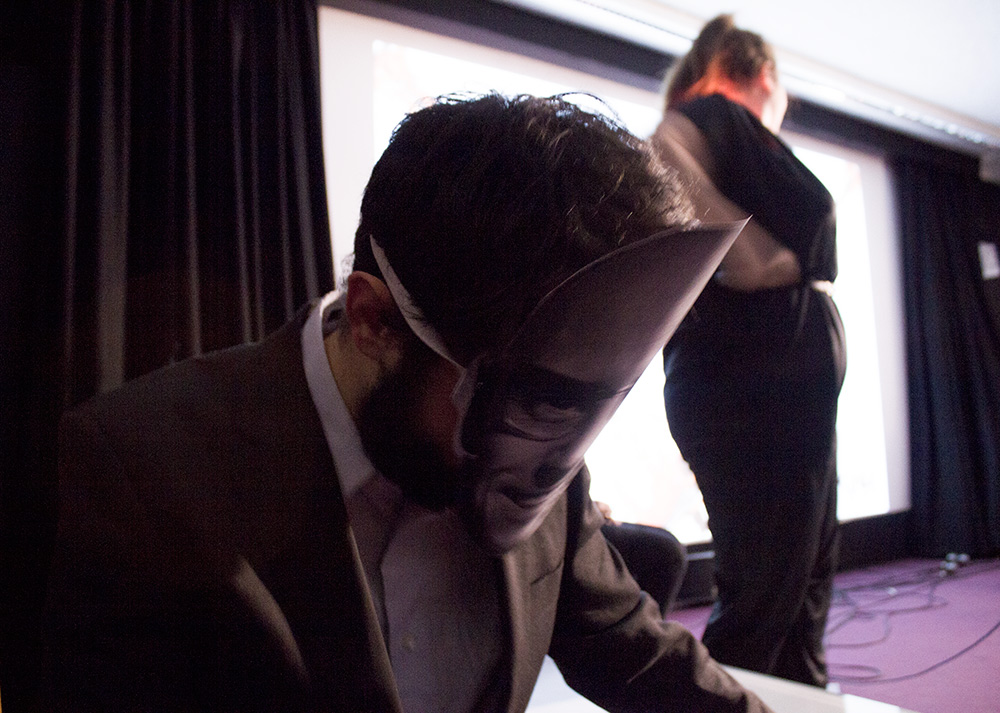
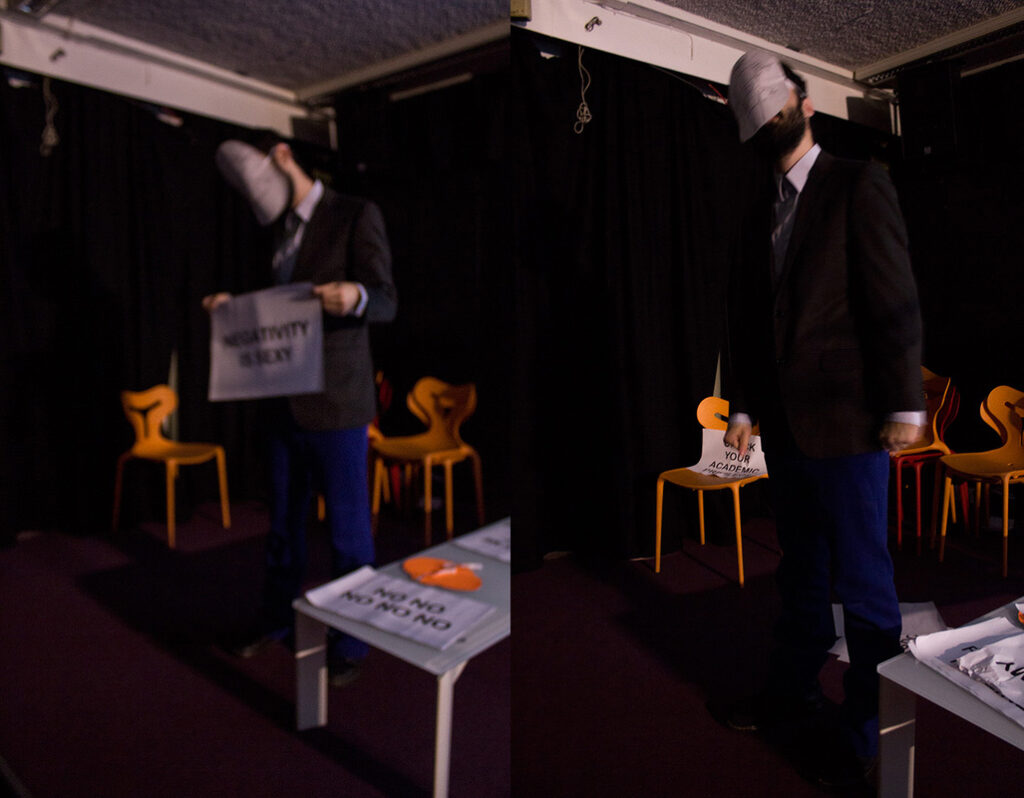
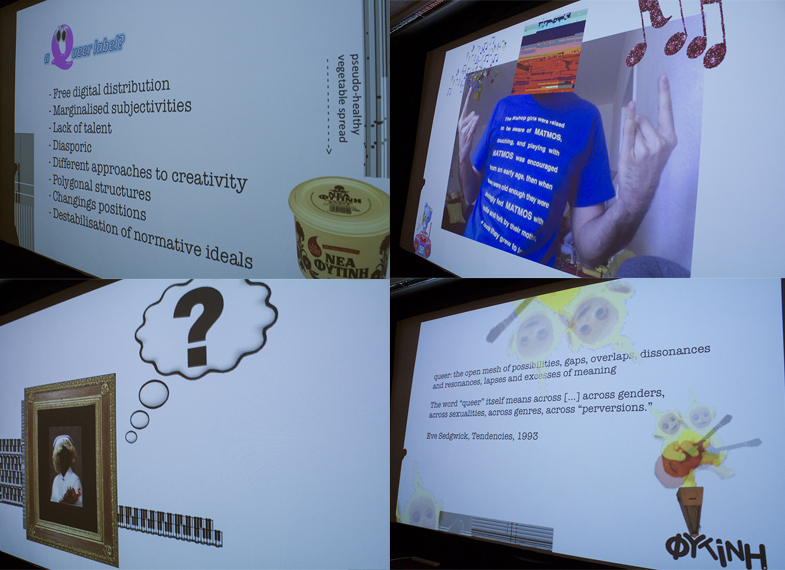
Greeceland
@Athens Biennale [Sep 2013]
The interactive installation Greeceland was presented twice: once in Athens [in greek] and once at the event Greek Trash, curated by Cuntemporary London [in English]. FYTA created a mapping of the territory around greek identity and then invited the audience to use stickers in order to mix and match the relationalities of the terms allowing for new (dis)associations with the central concept.
Greeceland is an endless network of contradictory definitions, inter-connections and imaginary genealogies. By creating greeceland FYTA decentralized the signifier ‘greece’ to its constitutive pre-conditions. Divergent threads, traumatic memories and irrational conspiracies are all coming together in a thoroughly ‘scientific’ graph. The ‘Greeceland’ spider-gram grows whenever the projects is introduced to new audiences as they add their own personal stories of (anti-)greekness creating new branches and semantic associations.
